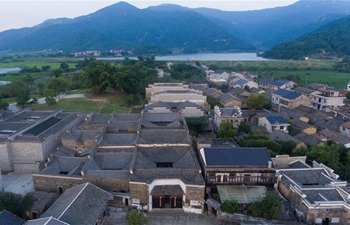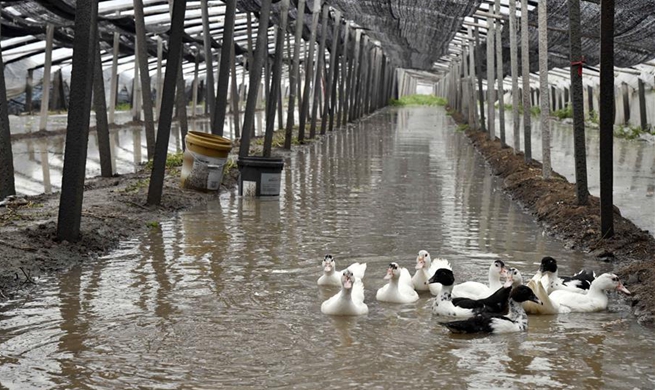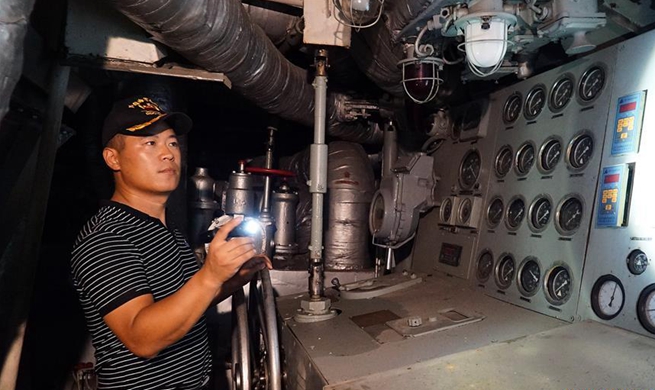LISBON, Aug. 12 (Xinhua) -- The Portuguese government announced on Monday a "civil requisition" asking the striking fuel tanker drivers back to work, after the council of ministers made an evaluation that the government-set minimum service is not fulfilled.
According to the Portuguese law, if the strikers cannot provide the minimum service, the government has the right to issue a "civil requisition", which will force the striking workers to return to work.
The government found particularly in the afternoon that the unions that called for the strike of dangerous goods drivers "did not provide the minimum services" set by the government, Secretary of State of the Presidency of the Council of Ministers Tiago Antunes said after a meeting.
"The government had no choice but to acknowledge the need to proceed with the civil requisition of striking drivers in order to ensure the fulfillment of minimum services," he said, adding that the measure would be "gradual" and applied to areas "in which the non-compliance is found ".
The Council of Ministers' resolution requesting the civilian requisition of striking drivers "will be complemented by two ordinances," he explained.
"One of them will effectively enforce civil requisition only in areas and services where so far non-compliance with minimum services has been identified, in particular the supply of the southern part of the country from Sines, the supply of REPA (emergency network of gas stations), ports and airports," he said.
The other ordinance "will establish the terms in which the intervention of the Armed Forces in the scope of this civil requisition takes effect," he said, referring to armed forces or police driving fuel tankers to deliver fuel.
Earlier in the day, Portuguese President Marcelo Rebelo de Sousa stressed the importance of safeguarding "fundamental rights, security and constitutional normality" in a note published on the website of the Presidency after his meeting with Prime Minister Antonio Costa.
Costa told reporters after the meeting that the situation regarding the fulfillment of minimum services "changed from morning to afternoon".
The airport authorities of Lisbon have complained that the supply at the airport is "insufficient, at levels well below the minimum service", causing "restrictions on operation".
However, the drivers' union said that the minimum services have been met, and a civil requisition by the government will be a big blow to the strike of the drivers.
"I see this (civil requisition) as an attack on the strike, because these people performed the minimum services. The government was not here ... these people left for work, they just did eight hours and not the usual 14 or 15 hours," said Pardal Henriques, a spokesman for the National Union of Hazardous Drivers (SNMMP).
The strike, called by the SNMMP and the Independent Freight Drivers Union (SIMM) and joined by the North Road and Urban Transport Workers Union (STRUN), aimed at calling for the employers' association -- the National Association of Public Road Hauliers (Antram) to comply with the agreement signed in May, which provides for a wage increase.
On July 15, the SIMM and the SNMMP delivered a strike notice and on Saturday, following a joint plenary session, they decided to maintain the strike following fruitless negotiations in recent weeks with the Antram on pay rise.
The government has ordered minimum services of between 50 percent and 100 percent and declared an energy crisis, which implies "exceptional measures" to minimize the effects of strike to ensure the provision of essential services such as security forces and medical emergencies.













